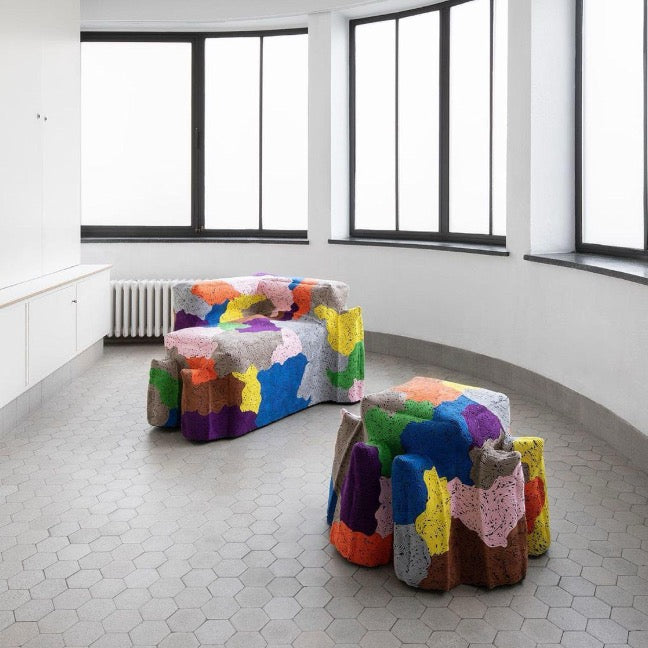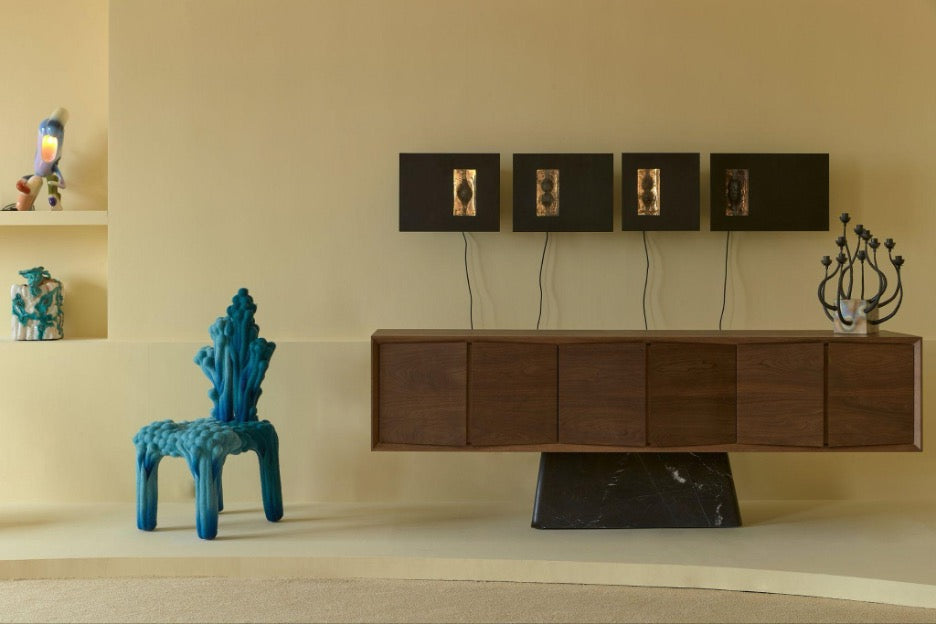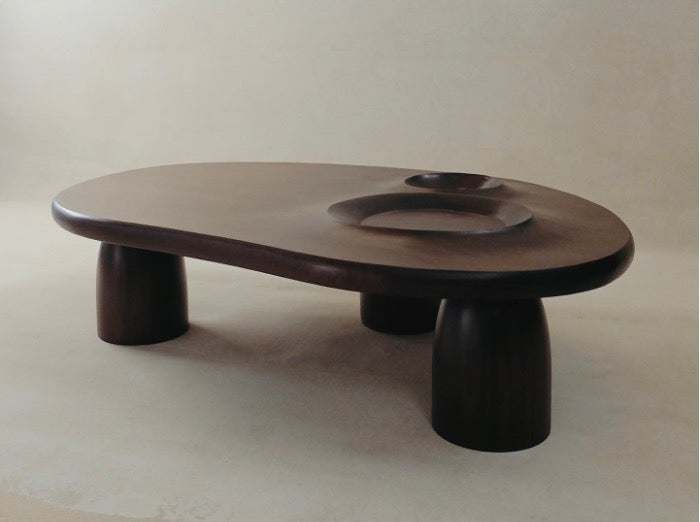“Exploring Materiality and Empowering Diversity”
Wendy Andreu is a visionary designer based in Paris, France. Her work transcends traditional boundaries, encompassing the realms of object, furniture, and fashion design, all while putting a spotlight on cutting-edge material research and innovative techniques.
In this interview, we delve into Wendy's journey, starting with her founding of a design studio seven years ago, first in Eindhoven and later in the artistic hub of Paris. Her academic background, a unique blend of metal craftsmanship and a design degree from the prestigious Design Academy in Eindhoven has paved the way for her distinctive approach to design.
Wendy's work reflects a profound commitment to responsibility, not only in her creative process but also in the impact of her designs on society and the environment. She discusses the importance of credibility, professionalism, and integrity in the world of design, particularly for women in the field.
Join us as we explore Wendy Andreu's vision for an inclusive design industry, her dreams of a more equitable future, and her innovative approach to crafting luxury from unconventional materials. This interview offers a glimpse into the mind of a designer whose work is poised to shape the future of design.
Can you tell us about your journey in the art and design industry? How did you get to where you are today?
I had the privilege of founding my design studio seven years ago, initially in Eindhoven and later in Paris. My academic background is a blend of metal craftsmanship at the Boulle School and a degree in design from the Design Academy in Eindhoven, Netherlands. These two educational experiences have shaped my current career, which is focused on experimentation for innovation, using various materials and techniques. My curiosity has always driven me to explore the potential of each material.
Today, my work consists of two main aspects: a forward-thinking approach where I develop new ideas and a bespoke approach where I cater to the specific needs of my clients. The former informs the latter, allowing for the realization of innovative projects.
How do you manage responsibility in your creative process?
Creating something new is always an exciting challenge. Selling concepts that don't exist yet to clients adds an extra layer of challenge. As a designer, it's crucial to demonstrate the credibility of our creativity, especially as a woman. Therefore, I place great importance on professionalism and integrity in all my projects, which enhances respect in our field.
As designers, we all have a responsibility to the world: what will be the fate of the pieces we design? I believe craftsmanship, as opposed to industry, allows for the creation of unique, high-value-added objects. My choice to work with local suppliers and artisans, mainly women in Paris, is a way for me to make a positive contribution to my community and promote inclusivity.
How do you see the future evolution in a world of inclusive design?
My hope is that the industry stops claiming inclusivity while not practicing it. Progress is needed, as evidenced by the recent almost exclusively male selections at the last PDW. For real change, it's essential for decision-makers and patrons to engage in acquiring works from underrepresented designers.
I dream of a future where gender equality is the norm, with women leading workshops in design schools. However, the key lies in empowering feminist women (or non-binary individuals) to positions of power, as they bring an ambitious vision of inclusivity. Design students need inspiring female role models to build their confidence and thrive in this field. Finally, it's time to integrate women into art and design history courses and stop ignoring them in artist and designer pairings.
What are your goals as a designer?
What interests me about design is its versatility. I'm fortunate to work on diverse projects, ranging from object production to artistic installations to industrial design. My constant goal is to innovate and constantly create something new.
My ultimate dream would be to establish a craft school alongside the Boulle School, where students learn to transform recycled materials. The idea would be to rethink how materials are sourced, considering them as valuable resources from waste. Tomorrow's designers must be able to create using these abundant waste resources.
Who would you like to work with?
I love working for fashion houses because I enjoy translating a brand's identity into a design proposition. The fashion industry inspires me greatly, and Paris, in particular, provides a dynamic backdrop for my work. My goal is to continue creating luxury objects using unconventional materials, whether they come from the industry or its leftovers.
How do you stay motivated and inspired in your work? Are there any specific rituals or routines you follow?
I love my job, and my motivation comes from my passion for creation. To stay inspired, I often travel and find inspiration in the Southwest. I enjoy visiting exhibitions and always stay attuned to the artistic and cultural news. Sports are also part of my routine to maintain my energy and creativity.
I strive to stay true to my values while evolving with our society. My goal is to remain authentic while developing ideas that align with these values.


